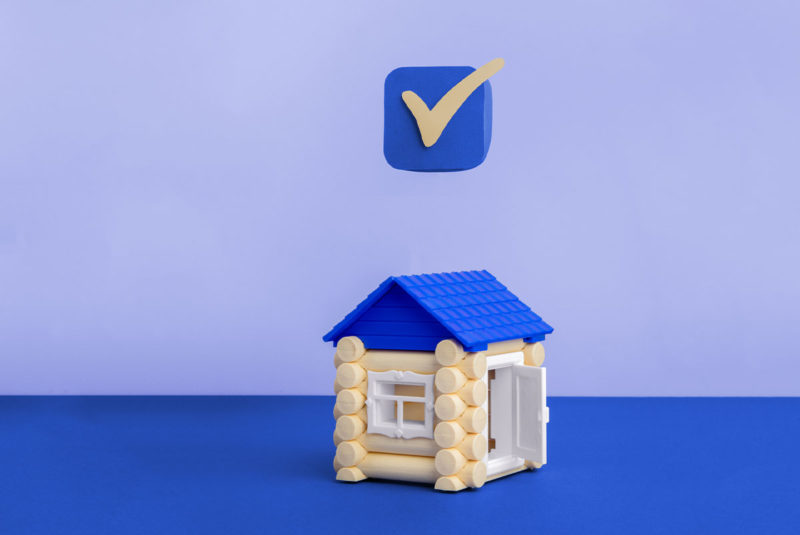Ready To Buy a Home?
Get Approved to Buy a Home
Rocket Mortgage® lets you get to house hunting sooner.
They say real estate is all about location. Well then, moving is all about timing. If you are in the process of selling your home, you are also likely in the process of buying a new one.
Perfectly lining up the sale of your home with the purchase of a new home can be tricky. If you sold your home but you’re still searching for a new one, you may need to enter into a rent-back deal with your buyer.
A rent-back agreement allows sellers to rent the home they just sold to a buyer. In the right situations, these agreements can be mutually beneficial for both parties. However, there are a few pitfalls that sellers and buyers should keep in mind.
What Is a Rent-Back Agreement?
A rent-back agreement is a formal agreement that allows the seller of a property to continue living in that property for an agreed amount of time after closing. The agreement, which is usually a short-term arrangement, is also referred to as a leaseback agreement, a post-settlement occupancy agreement or a sale and rent-back.
Here are some scenarios where a rent-back or leaseback agreement might be appropriate:
- The seller is building a new home, and construction will not finish on time.
- The seller receives an offer on their home before they can start shopping around for a new house.
- The seller stays because they have school-aged children who would benefit from finishing the school year.
If a seller strongly suspects their move will be delayed for any reason, they should consider exercising the option to rent the property back from the buyer after the sale.
What Should Be Included in the Rent-Back Agreement?
While there is no standard rent-back agreement, your real estate agent should be able to supply you with a template.
At this point, the seller and buyer will need to think about what they want, their needs and their ability to be flexible. Here are a few terms both parties will need to agree on:
- Agreement length: How long the seller will be allowed to stay in the property.
- Rental Rate: The buyer and seller will decide whether rent will be charged on a daily, weekly or monthly basis.
- Utility payments: The seller typically pays the utility bills, but this provision can be negotiated.
- Entry rights: It is not unusual for the seller to allow the buyer entry to the property. The buyer may need access to make structural changes or create estimates for future projects.
- Maintenance: What happens if a pipe freezes or an air conditioner needs servicing? Who is responsible for maintaining the property’s value? That is another provision that must be negotiated between the buyer and seller.
- Insurance: Homeowners insurance premiums are typically covered by the home’s occupants. The buyer and seller must decide who will be responsible for making the payments during the rent-back agreement period.
The agreement should spell out who will pay for utilities, maintenance, renters insurance and other potential expenses – and what happens if a party doesn’t keep their end of the agreement.
What Are the Pros and Cons of a Rent-Back Agreement?
Buyers and sellers must consider both the risks and the rewards of entering into a rent-back agreement. There are no standard agreements; the home buyer and the seller will need to negotiate terms.
PROS of Rent-Back Agreements for Buyers👍
Offering the seller some latitude can make your offer more attractive than an offer from a buyer who is in a hurry to move in.
The rental income earned from a rent-back agreement may help cover closing costs, fees or moving expenses.
CONS of a Rent-Back Agreement for Buyers👎
You must collect rent, and you may need to cover utility and maintenance costs.
Waiting for the former owner to move out can put your moving plans on hold.
If the seller stops paying rent or violates the terms of their rent-back agreement, you may have to evict the seller, and that can be a stressful and time-consuming process.
Pros and cons for sellers
Rent-back agreements are usually proposed by sellers. Here are some considerations sellers should keep in mind:
PROS of Rent-Back Agreements for Sellers👍
If you need more time to find a new home, a rent-back agreement means you can avoid organizing temporary living arrangements or moving twice.
CONS of Rent-Back Agreements for Sellers👎
You may pay more in rent than you did for your mortgage.
You don’t own the home, so you can’t make permanent changes. You also risk losing your security deposit if you break the agreement early.
Spend a Little More Time and Get the Deal That’s Right for You
Whether a rent-back agreement is right for you will depend on your current circumstances. The process usually involves some negotiating between a buyer and seller, which is why both parties should take the time to establish and communicate their personal goals.
Rent-back agreements are a routine part of the real estate process, but you should seek the help and advice of your real estate agent or real estate attorney to draw up the agreement.
Looking to make a change?
Whether you want to buy a house, refinance or take cash out, you’re not alone. The experts are just a click away.
The Short Version
- A rent-back agreement is a formal agreement that allows the seller of a property to continue living in that property for an agreed amount of time after closing
- Rent-back periods usually last anywhere from a few days to 60 days
- There are no standard agreements; the home buyer and the seller will need to negotiate terms




